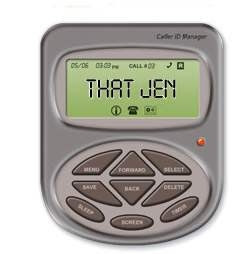
We all do it...blame in on the champagne but who honestly knows the words to our new year's mantra? As the country stumbles through the lyrics at midnight, and 9, 10 and 11 pm in California (we're cheaters- no shame), ever wonder why we keep singing it?
The Origins of Tradition Bring Sense to New Year's Festivities
By EMILY NELSON
Dec. 30, 2006 —
We toast. We kiss at midnight. We even stumble through the lyrics of a song we're not sure we know the words to. But why?
This year, as millions of Americans finalize New Year's celebration plans, the traditions of the holiday season are never far from thoughts and actions. The origin of why we do what we do sometimes reveals good reasons to hold onto the old while ushering in the new year.
The Midnight Kiss
Perhaps the most iconic image of a New Year's Eve celebration is the highly anticipated midnight kiss. And according to German and English folklore, there is reason to plan ahead for the smooch.
Legend emphasizes that the first person you come in contact with in the New Year -- be it a friendly face or an unfavorable acquaintance -- is indicative of the luck that awaits you in the coming year.
In more recent times, the midnight kiss has been thought of as a telling sign of the year to come in matters of the heart.
For those serious about scheduling their luck, online communities like Craigslist have been filling up with posts for those partygoers looking to book a kiss on the big night.
A recently single 25-year-old Manhattanite posted: "Looking for a romantic girl to kiss New Year's Eve in Times Square."
A Craigslister in Chicago waxes nostalgic, "Of all the holiday relationship joys, that is the one that I miss the most, as the countdown winds itself to 1."
A search term like "New Year's Eve kiss" can lead you to a countless number of others looking to find the same.
"I've never been kissed on New Year's Eve," says one user. "I'm crossing my fingers for this year."
What's That Song?
Often described as the world's most popular song no one knows the words to, "Auld Lang Syne" has become something of a soundtrack for midnight on New Year's Eve.
The title of the Scottish tune translates to "times gone by" and is about remembering friends from the past and not letting them be forgotten.
Despite its strong association with New Year's Eve, "Auld Lang Syne," written by Robert Burns in the 1700s, was never intended to be a holiday song. Guy Lombardo is credited with popularizing the song when his band used it as a segue between two radio programs during a live performance at the Roosevelt Hotel in New York in 1929. By mere coincidence, they played "Auld Lang Syne" just after the clock hit midnight, and a New Year's tradition was born.
Offering a Toast
Americans consumed over 20.6 million bottles of champagne over the course of the calendar year, with 40 percent purchased in the last six weeks. It's an indication that it would be unimaginable to toast 2007 with anything other than bubbly, as good food and drink have long been auspicious signs for welcoming the new year across the globe.
The Office of Champagne, USA, based in Washington, D.C., says they get hundreds of inquiries about champagne etiquette in the month of December.
"This is by far our busiest month of the year," said a spokesman for the organization. "We get a lot of people asking about how to serve champagne and what the best way is to store it."
A wine lover's Web site warns that when it's time for the toast, it's important to proceed with caution when popping the cork. On average, it leaves the bottle at a speed of 42 feet-per-second.
Ending the Night with a Bang
Fireworks and noisemakers at the moment of the New Year date back 2,000 years to China, where they believed the revelry would frighten away evil spirits.
Perhaps the best known (and least favorite) of all New Year's traditions is the New Year's resolution, which first started with the Babylonians. Though the tradition remains, the resolutions have changed over time. Four thousand years ago, Babylonians most likely pledged to return borrowed farm equipment once the new year dawned. In 2006, the majority of Americans resolved to lose weight.
There's one part of the ancient Babylonian tradition that has not changed over time -- habitually breaking the resolution before the year's end.






 This is a great shot from
This is a great shot from 








 Jen and Tony Snow!
Jen and Tony Snow!













